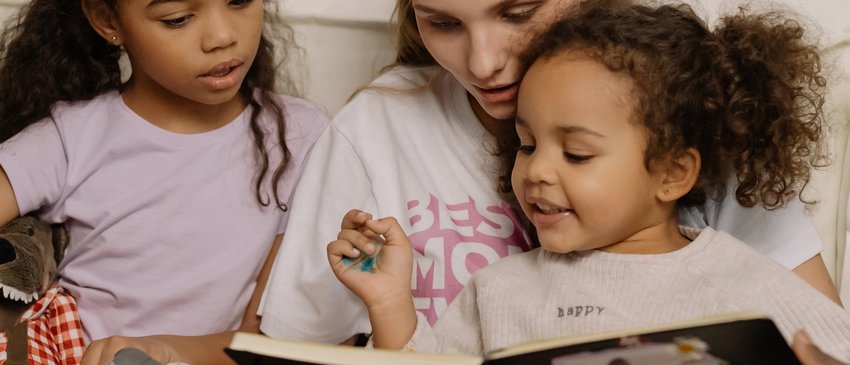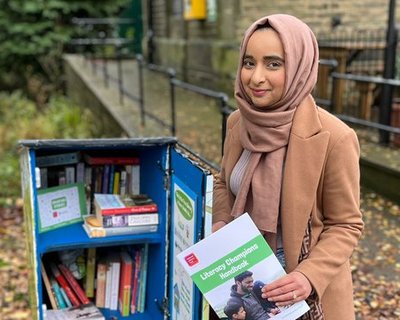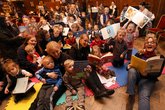The North East

The National Literacy Trust in the North East works in partnership with communities to equip children and families with the literacy skills they need to thrive.
We collaborate with local organisations, schools and businesses to build a strong culture of reading, writing, speaking and listening across the region - and encourage businesses to play a key role in tackling literacy inequality.
Our work is focused in four key areas with the highest levels of deprivation and lowest literacy outcomes: Newcastle, Gateshead, Stockton and Redcar. Here, we run a wide range of free programmes, events and book-gifting initiatives designed to support families and primary-aged children.
We also support families with children aged 0-5 through our flagship early years programmes, First Words Together and Early Words Together, which form part of our new Early Words Matter campaign, helping families build strong communication and language foundations from the very start.
Stay up to date with our latest events and community activity by following us on Facebook.
Or get in touch with the team at northeast@literacytrust.org.uk
United by Stories
Come along to United by Stories on Friday 15 August, our brand new summer family event in partnership with Newcastle United Foundation.
From football to storytelling, crafting to sensory play, there is so much free fun to be had this summer!

Volunteer with us
Would you like to make a difference in your local area?
Sign up as a volunteer Literacy Champion and, if you live in the North East, you'll have the chance to join our fantastic team of supported volunteers! Find out more about becoming a Literacy Champion and sign up with the link below.

-
We have lots of useful tips, guidance and free activities for parents, to help you support your child's literacy development as they grow.Learn more
-
Read North East supports schools to make literacy improvement a priority and encourage pupils to read for pleasure.Learn more
-
We rely on the generous support of individuals, schools, communities and businesses to help us continue our vital work in the North East.Learn more





